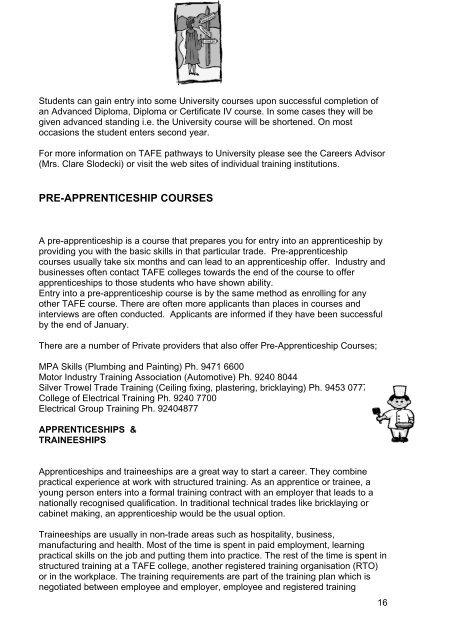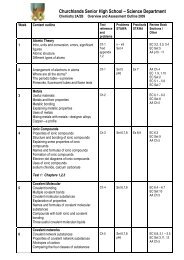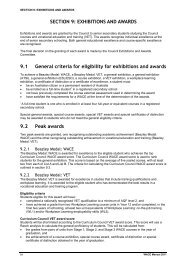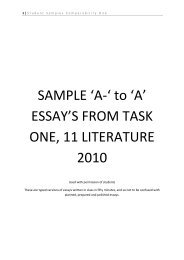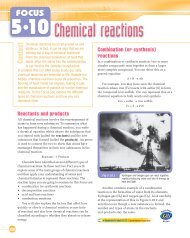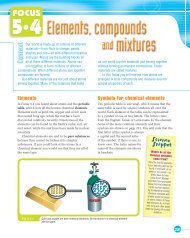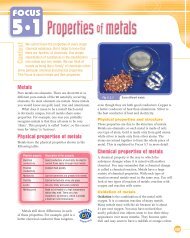3a/3b - Churchlands Senior High School
3a/3b - Churchlands Senior High School
3a/3b - Churchlands Senior High School
Create successful ePaper yourself
Turn your PDF publications into a flip-book with our unique Google optimized e-Paper software.
Students can gain entry into some University courses upon successful completion ofan Advanced Diploma, Diploma or Certificate IV course. In some cases they will begiven advanced standing i.e. the University course will be shortened. On mostoccasions the student enters second year.For more information on TAFE pathways to University please see the Careers Advisor(Mrs. Clare Slodecki) or visit the web sites of individual training institutions.PRE-APPRENTICESHIP COURSESA pre-apprenticeship is a course that prepares you for entry into an apprenticeship byproviding you with the basic skills in that particular trade. Pre-apprenticeshipcourses usually take six months and can lead to an apprenticeship offer. Industry andbusinesses often contact TAFE colleges towards the end of the course to offerapprenticeships to those students who have shown ability.Entry into a pre-apprenticeship course is by the same method as enrolling for anyother TAFE course. There are often more applicants than places in courses andinterviews are often conducted. Applicants are informed if they have been successfulby the end of January.There are a number of Private providers that also offer Pre-Apprenticeship Courses;MPA Skills (Plumbing and Painting) Ph. 9471 6600Motor Industry Training Association (Automotive) Ph. 9240 8044Silver Trowel Trade Training (Ceiling fixing, plastering, bricklaying) Ph. 9453 0777College of Electrical Training Ph. 9240 7700Electrical Group Training Ph. 92404877APPRENTICESHIPS &TRAINEESHIPSApprenticeships and traineeships are a great way to start a career. They combinepractical experience at work with structured training. As an apprentice or trainee, ayoung person enters into a formal training contract with an employer that leads to anationally recognised qualification. In traditional technical trades like bricklaying orcabinet making, an apprenticeship would be the usual option.Traineeships are usually in non-trade areas such as hospitality, business,manufacturing and health. Most of the time is spent in paid employment, learningpractical skills on the job and putting them into practice. The rest of the time is spent instructured training at a TAFE college, another registered training organisation (RTO)or in the workplace. The training requirements are part of the training plan which isnegotiated between employee and employer, employee and registered training16


